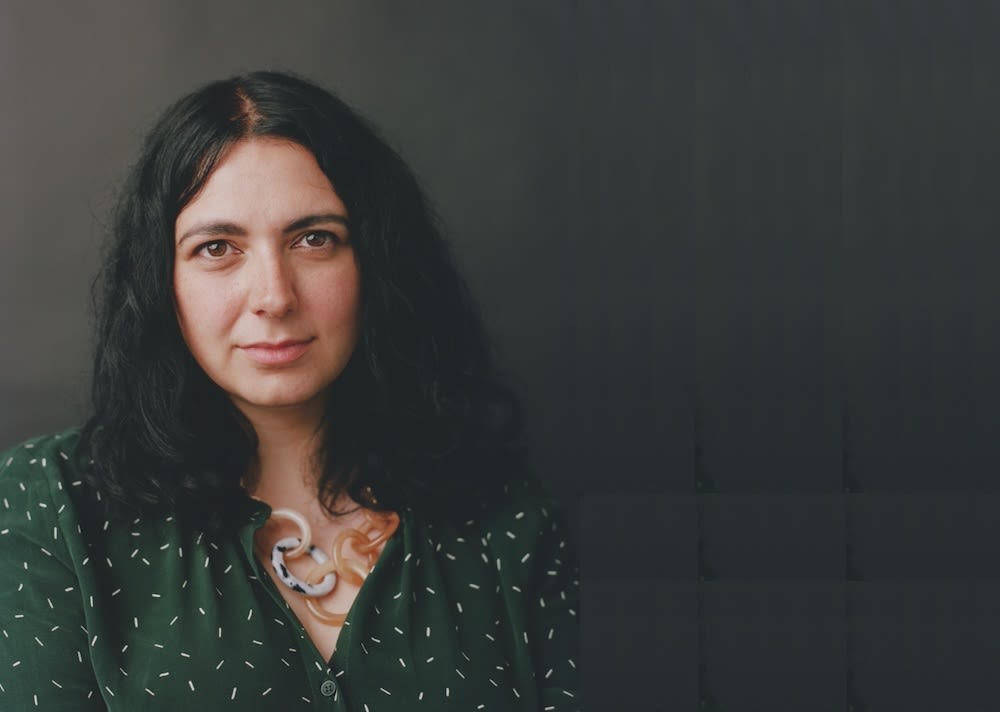Reading the World and Writing the Future

English is a key contributor to the creative industries, the fastest growing part of the UK economy and average graduate starting salaries are comparable with Psychology, Law, Business Studies and Chemistry.
As the #EnglishCreates campaign shows how students and graduates can create a difference in the world through an English degree, and futureproof their skills for life, work, and social change, University of Aberdeen graduates of English literature, linguistics and creative writing share their success stories.

Photo by Etienne Girardet on Unsplash
Photo by Etienne Girardet on Unsplash

ALI SMITH
Having completed her joint degree in English Language and Literature in 1984 followed by an MLitt in 1986 , Booker-shortlisted author Ali Smith is one of the University of Aberdeen’s most famous living graduates. She recently praised the discipline stating,
“Studying for an English degree is one of the best ways there is to learn to read the world.”

Many of our recent graduates across English literature, linguistics and creative writing are exemplary of Smith’s words in using their heightened abilities to interpret, communicate and empathise as part of changemaking roles across industries as varied as journalism, campaigning, marketing, creative writing, publishing, learning and engagement, and artificial intelligence to name a few.
National journalist Rory Buccheri, an MA in English and Art History (2022) graduate who has written for the Financial Times, Metro, Big Issue and TimeOut, explains:
“Having conversations about books revolving around class, gender, race, empire and economy has made me an advocate for positive change in society. At a time of crisis, looking at the texts that shape our society (whether it be books, languages, or the media) is the best way to become an agent of change. Now more than ever – at a time of polarisation, fake news, and hopelessness – those who recognise the power of stories and know how to tap into the power of words, hold the key towards positive change.”


Chris Afuakwah, who graduated with an MA in English in 2015, similarly recognises the impact studying English has had on his work supporting refugees in Calais across 2017-2018 and as a Media Officer for Scottish Refugee Council since:
“Where else can you learn about the world from so many different angles and perspectives all at once? My four years at Aberdeen, the books I read, the friends I made and experiences I had have shaped my life since in ways I didn't realise at the time. From modules in creative writing at Aberdeen to writing about the refugee crisis and developing press releases and opinion pieces, the confidence I gained in my writing while studying at Aberdeen has stuck with me and only grown since.
While working in Calais, the situations I found myself in felt stranger than fiction - so being able to gather my thoughts creatively, in a way that could connect with my audience, was hugely beneficial both for building understanding among my audiences and also for my own mental health. This ability to communicate and be creative, as well as research and critical thinking skills, combined with experience, led directly to employment in the Policy and Comms team at Scottish Refugee Council.’

English graduates are also making positive changes and advocating for change within business roles. 2014 graduate Beth Paterson is currently Head of Marketing Communications for life insurance company Sunlife following similar roles in other Phoenix Group brands. Through this work, she has supported the business’s national outreach campaigns to make a difference.
“My proudest campaign so far was ‘Beyond the Invisible’ which featured a gallery exhibition with photography by Rankin to showcase the challenges that people living with endometriosis face in their lives, careers and when saving for the future.
This was an opportunity to use my creativity and understanding of how to tell a good story to build awareness of the brand I work for, as well as to benefit the charity that we were partnering with who needed a platform to raise awareness.”
Beth Paterson


Our graduates are not only responding to the problems we face today as a society, but are also informing and shaping our understanding of the future.
Following the completion of her M.Litt in Creative Writing in 2014, Scottish-Egyptian novelist Rachelle Atalla has since published two critically-acclaimed works of speculative fiction, including 2023’s Thirsty Animals which imagines what might unfold at the Scottish Border if the UK were to face an extreme water shortage in the near future.
Atalla explains, ‘The degree offered me the opportunity to study a wide variety of literature and deepen my understanding of what literature can do. I developed my practice as a writer and found my narrative voice, which ultimately led to me becoming a published author.’


Lucia Mackova
Lucia Mackova
Lucia Mackova, who completed an M.Litt in English Linguistics for Advanced Teachers of English in 2013, is also looking to the future having recently made a significant career transition from teaching into the world of programming and Artificial Intelligence:
“My linguistic background played a crucial role in successfully pivoting to a career in software development, recognising the parallels between programming languages and human languages.
Thanks to my linguistic skills, the transition was smoother than anticipated, highlighting the interconnectedness between language and technology. With the burgeoning advancements in AI, the landscape of language, writing and linguistics is evolving rapidly.
New opportunities are emerging, promising exciting prospects for those equipped to navigate this evolving terrain. By arming yourself with a solid foundation in these disciplines, you position yourself to harness the potential of these advancements and thrive in a changing world.”

Lucia is one of many our graduates who have proven adaptable and future ready in the face of an ever-changing jobs market which now looks set to highly favour graduates of English literature, linguistics and creative writing in the coming years due to their enhanced communication, critical thinking, collaboration, oracy and creativity skills.
While Arts and Humanities graduate employability rates are currently similar to STEM graduates,1 the creative industries are the fastest growing part of the UK economy, with 900,000 new jobs set to be created by 2030, adding to the 25% of Arts and Humanities graduates who already work in this sector.2
Moreover, given the strong examples of leadership and forward-thinking to be found in our own graduates, it is no surprise that Humanities graduates comprise 55% of global leaders and 58% of FTSE company execs.3
Read more of our graduate stories in English, Linguistics and Creative Writing here.
#EnglishCreates

1 Prospects.ac.uk
2 The British Academy, ‘Qualified for the Future’ (2020)
3 London Economics, ‘Understanding the Paths of AHSS Graduates’ (2019)
